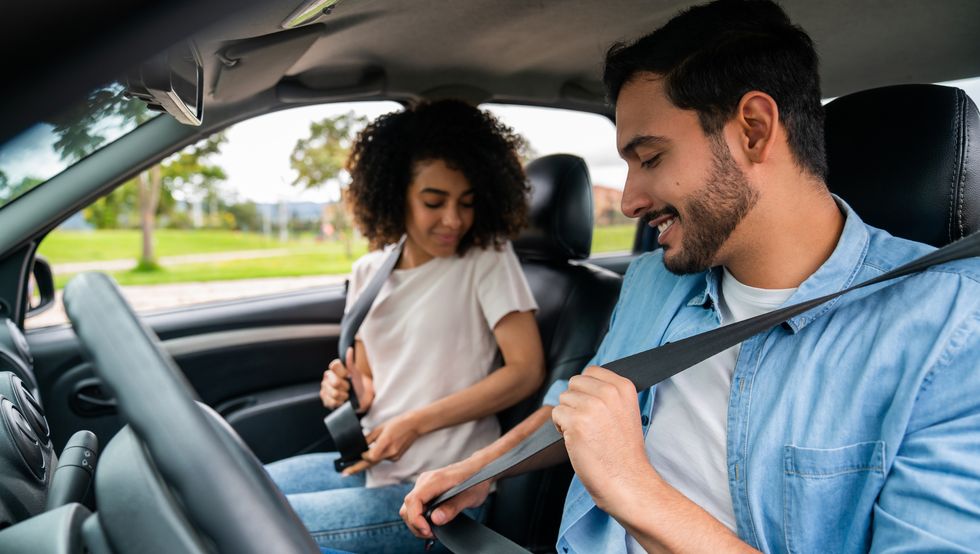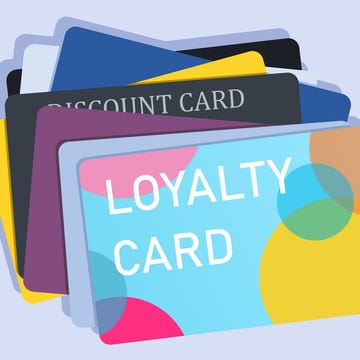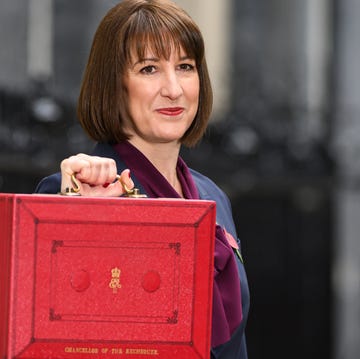If you are about to renew your car insurance, sharpen up your cost-cutting skills! The latest figures from GoCompare shows the average price is up 23%, over the same period in 2023, rising from £371 to 456. Whilst there are plenty of ways to make sure we aren't paying over the odds, too many of us aren't remembering to deploy them. Buying your car insurance 26 days before your renewal is due is one way to save but research shows that 98% of people miss this window of opportunity so could end up paying 55% more as a result*.
Is car insurance rising or falling?
The average cost of comprehensive car insurance, according to the latest Association of British Insurers figures, is now £622, falling 2% between April and June compared to the first quarter of 2024.
While it's good news that costs are falling, that's not the whole picture. The average policy is still £100 more than it was a year before, meaning that car insurance is still a significant cost for motorists and continues to add pressure while we are in a cost-of-living crisis,' says Tom Banks, GoCompare.
What to read next
There are a whole range of factors that influence the increases from rising costs of energy, raw material and car repair costs (28% higher than in the previous 12 months), to an increase in claims since the pandemic. Car insurance companies inevitably pass these costs onto customers.
If you're looking for a new policy, here's what you need to know to help you keep the cost down:
What factors influence the cost of your premium?
- Age. Car insurance tend to get cheaper between the ages of 17 and 25. They tend to rise again once you turn 60.
- Where you live. Locations that experience a higher number of claims, traffic, theft and accidents are likely to have higher premiums so where you live makes a huge difference to the cost.
- Your driving history. If you have made any claim in the past or have points on your license this will have an impact. The longer you have been claim free the lower your premium is likely to be.
- Your occupation. Whether your job involves travel or not will be one of the factors considered by insurance companies.
- Your car. The age of your car, the make, model, fuel type, transmission and engine size will all invariably affect your insurance premiums.
- Annual mileage. The more you use your car, the more of a risk you are.
How to get cheaper car insurance
Compare car insurance deals
Check out car insurance deals with at least two comparison sites, such as Confused.com, Compare the Market and Uswitch - half of car insurance customers could save as much as £531, according to Compare The Market. You should also check out Quidco Compare which acts as both a comparison and cashback site and can offer good deals. Don't forget to research insurers that aren't on comparison sites, such as Direct Line.
Remember to compare all insurance quotes on a like-for-like basis though. Some may offer breakdown cover as an optional extra and for others it may come with the policy, so check all these details. Once you've rounded up your quotes, it's worth going back to your current insurance company and ask them to match any cheaper quotes you've found.
Don't auto-renew
One in five of us auto-renew without checking for better quotes, which means you could be needlessly overpaying for your next year's car insurance. Typically your insurer will remind you about three weeks before your policy is due to run out.
'Not auto-renewing and comparing insurance policies every year is a sure-fire way to make sure that you aren’t paying over the odds on your car insurance every year,' says Tom Banks. Use the auto-renewal reminder as a big hint to get researching for a better deal straightway, before it's too late to shop around.
Time it right
According to research by MoneySavingExpert, the cheapest time to buy car insurance is 20-27 days before your policy expires. Its analysis of a million quotes (from Jan-April 2024 from MoneySupermarket) and found the average quote made on the day of renewal was £2,277, but £905 buying it 26 days. That's a difference of £13,71. Now there's an incentive!
Pay annually
If you can afford it, paying up front for the whole year will also save you money compared to a monthly direct debit. This is because interest is charged on instalment payments. Those paying monthly rather than annually for their car insurance policy could be paying £249 more every year for the same cover on their vehicle, according to GoCompare.
Opt for a higher excess
Volunteering to pay a higher excess can reduce your premium, but make sure you can afford it in case of a claim.
Add an experienced named driver
Adding another driver - such as your partner or adult child - can cut the cost of car insurance, providing they’re experienced drivers without a claims history. Insurers see this as reducing the ‘risk’. Named driver car insurance is a legitimate way to bring down the cost of insurance as long as the more experienced motorist also drives the car. But the main driver of the car (the person who drives it the most) has to be the main driver on the car insurance policy.
Ask for discounts
Some insurers offer discounts for NHS employees, students, armed forces, or members of professional organisations. Always ask if you're eligible for any special rates. Your occupation is key to what you are quoted for cover.
Grab a multi-car discount
If your household has multiple cars, look for insurers offering a multi-car discount which could offer significant reductions for motorists living together.
Consider a telematics policy
A telematics insurance policy means a black box tracking device is fitted onto your car (there are also self-fit black boxes or an app which turns your smartphone into a tracking device) which monitors your driving and sends data to your insurer to provide a personalised quote. This data enables more accurate risk pricing and therefore may reduce premiums for those who demonstrate that they are safe drivers.
But, telematics aren't always the cheapest option so always compare with regular car insurance as well. Nimblefins compared prices with four brands offering both telematics and non-telematics options, the telematics was cheaper on average by 31% compared to the regular car insurance option.
Protect your no-claims bonus
The higher your no-claims bonus, the bigger benefit you could see to your premium, so consider protecting it to keep prices down where you can.
Keep your car safe
The safer your car is tucked away at night, the happier your insurance company will be. Any additional security features you add can make a difference to your premium, including an alarm, immobiliser or keeping your car in a garage overnight.
Don't guesstimate mileage
With car insurance policies, it pays to check your annual mileage (on the car's MOT certificate), rather than give a ball park figure. Make sure you consider any recent changes to your driving habits – for example, if you now work from home and drive less. The more miles you drive, the more you are likely to pay for your insurance. Try to estimate your mileage as accurately as possible to avoid paying over the odds – but be careful about underestimating, too, as this can invalidate your insurance.
Don't over insure
Always put a realistic value on your car — when asked to value our cars most of us have a pretty inflated price in our mind so it is worth checking similar makes and models online to get an idea of the replacement cost. Remember in the case of an accident the insurance company will only pay out the market value of the car at the time of the claim. Sites like AutoTrader or What Car? can help you to assess the true market value of your car.
Negotiate down
If you'd prefer to stick with your existing insurer, it's worth trying to negotiate on the cost of renewal. Finance expert Sue Hayward advises: "Boost your bargaining power by comparing offers from competitors first. If you find the same, or better cover, at a cheaper price, choose the ‘thinking of leaving us’ option when you call your provider or ask for the ‘retentions’ department and see if they can match it. Many insurers will discount prices on renewal if you ask, but they don’t advertise this!"
Get a lower risk car
You can lower the cost of your insurance by driving a car in a lower risk insurance group – check out MoneySuperMarket’s Car Insurance Groups Checker which uses data supplied by Thatcham, the motor industry’s research centre.
Get the right cover for you
Choose between a comprehensive or third party cover carefully. While third-party fire and theft is the cheapest level of cover, the average cost for a comprehensive policy is currently just £6 more at £455, and could offer you more protection, according to GoCompare figures.
What are the different types of car insurance cover?
Third party — this is the minimum insurance you need to drive legally in the UK. It covers your legal liability to pay damages to other people for injury to themselves, their passengers and their property. It doesn't pay out for damage to your car, its theft or your medical expenses if you're injured. However, if the accident is proven to be the other party's fault their insurance should pay.
Third party fire and theft — this gives the above cover and will also pay out if your car is stolen or catches fire.
Fully comprehensive — this covers all of the above, and also includes damage to you and your own car. You can claim for accidents that are deemed to be your fault, though this may affect the price of your premium in future years. It's best to choose fully comprehensive insurance as for the most part it's not more expensive than other forms and is, in fact, often cheaper because a lot of high-risk drivers tend to go for lower levels of cover.
Additional cover - some policies include additional benefits, or you can choose to arrange them as 'add-on cover'. They include motor legal expenses, a temporary replacement car, driving other cars insurance and breakdown cover.
What does car insurance 'excess' mean?
The excess is the first part of any claim that you have to pay yourself. There are several types:
Compulsory excess — this is the amount set by the insurer that you will pay on any claim before their contribution kicks in. So, if you drive into someone's car causing £250 damage and your compulsory excess is £100 – you pay £100 and your insurers pay out £150.
Voluntary excess — this is an amount you might offer to pay, in addition to compulsory excess. Offering to chip in more this way (a voluntary excess of £150, £200 or whatever) can lower the cost of your premium.
*Based on Comprehensive Car Sales purchased through Go.Compare between 01 May 2023 and 30 April 2024















